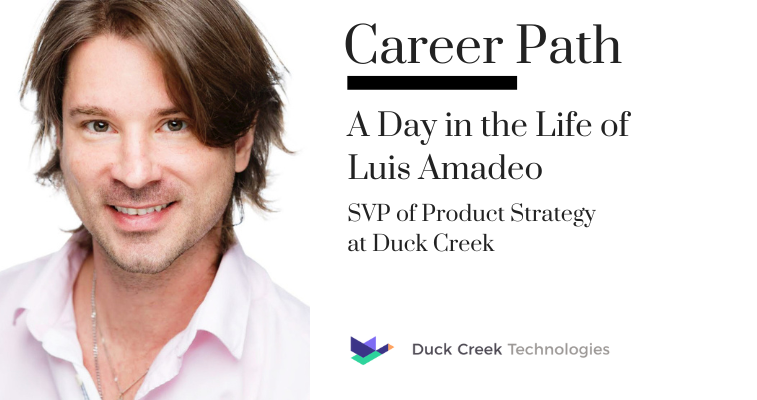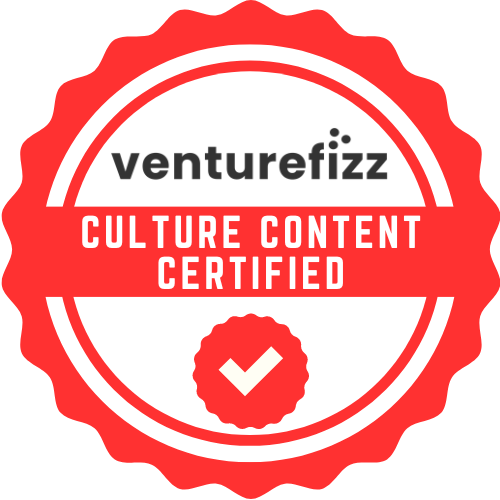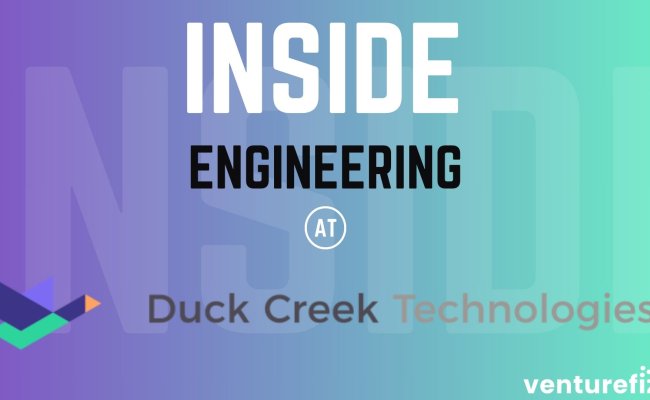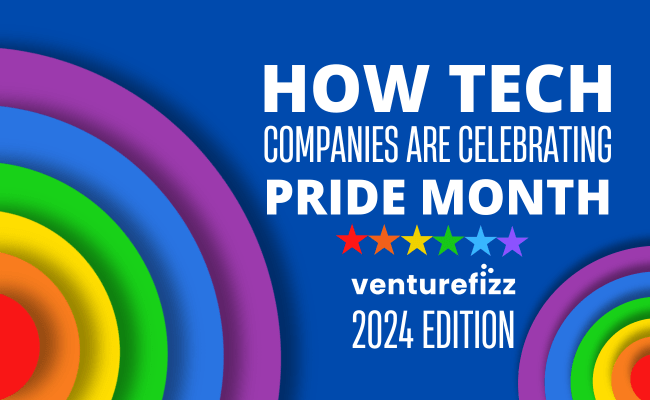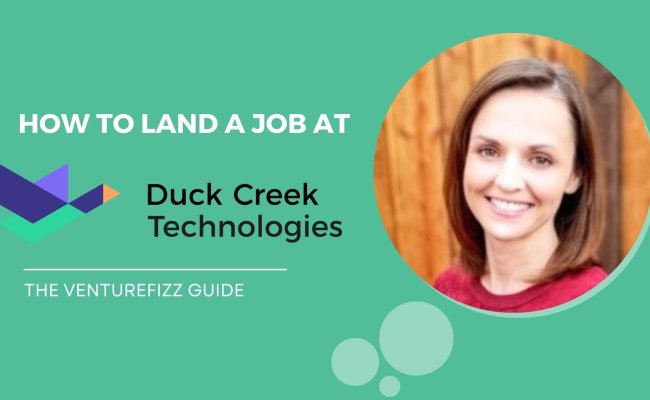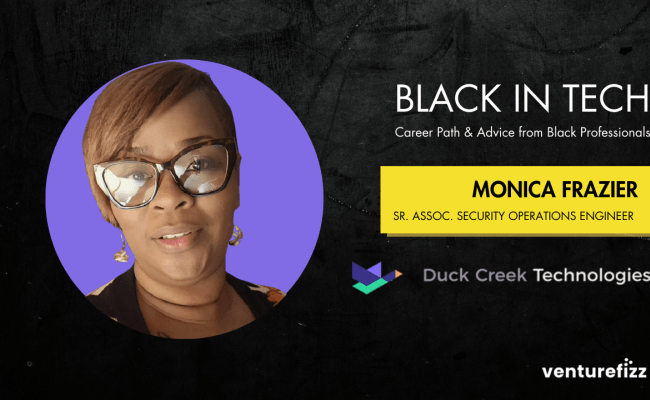What do the career path and the day-in-the-life look like for a SVP of Product Strategy at Duck Creek?
We connected with Luis Amadeo to find out!
Interested in learning more about Duck Creek and their job openings? Make sure to check out their company page on VentureFizz!
Where did you grow up? What did your parents do for work?
I grew up in San Juan, Puerto Rico, specifically in the “parada 18” of the Santurce district (“parada” means bus stop). My mom worked as an analyst for the PR Department of Energy, helping draft energy policy for the island for over 40 years. She is now enjoying her much deserved retirement. My dad taught economics at the University of PR, worked for the PR Department of Transportation, and eventually left all that to follow his passion for cooking - he owned and ran a seafood restaurant for about 30 years before he retired.
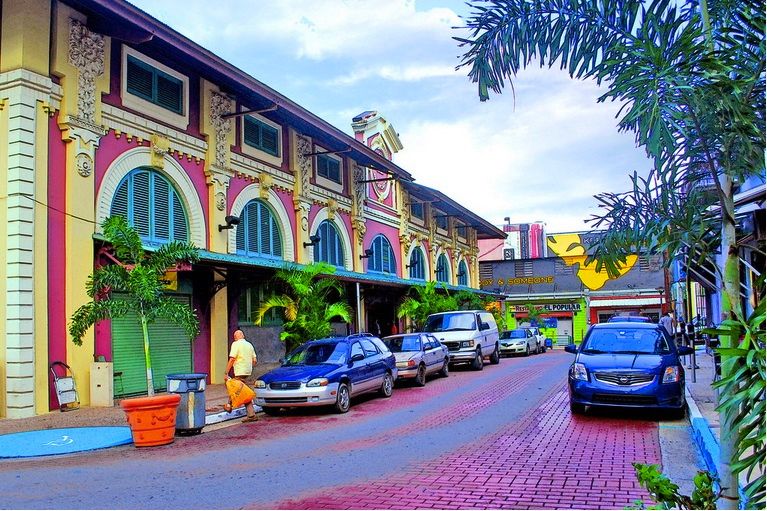
Santurce PR, where I was born and raised
Where did you go to college? What did you study and what were some of your initial jobs out of school?
I went to Cornell University in Ithaca NY, where I got my undergraduate degree in Mechanical and Aerospace Engineering. As you can imagine this was a huge culture (and climate) shock for me coming from PR. I loved Cornell though, and all the faculty and friends that helped me pull through those amazing years.

Cornell University, my alma mater
My first job out of college was as an Aerospace Engineer for Pratt & Whitney in West Palm Beach, FL. I worked in the Combustion Technology Group (R&D), helping advance combustion innovation in the field. My first project was for the US Department of Energy, and involved exploring designs for combustors that would significantly reduce NOx emissions. My second project was for the Department of Defense and was classified, but let’s just say that it was related to a derivative of the F-22 engine. This was in the late 1990’s, and was a very interesting time for technology. Tech was shifting from innovations in industrial manufacturing to innovations in software delivery via the internet. After three years as an aerospace engineer I decided to make a move for software, specifically web development. I’ve always loved computers and programming since I was a kid (I started programming BASIC with my Apple IIc), and learned Pascal in college, but I had never learned how to build a web app. I went to Barnes & Noble, bought as many books as I could find on software technologies (ANSI C, Java, VB, JavaScript, HTML, SQL Server, ActiveX, Java Applets) and consumed them all. I was lucky enough to get a consulting job opportunity at a startup in Miami, so I left my job as an aerospace engineer in WPB and took a leap of faith as a software development consultant in Miami, where I currently live. As a consultant I got to gain many skills and learn new software technologies pretty rapidly. After six years as a consultant, and learning how to build custom web apps, Java apps, Oracle, SAP, Siebel, and a lot of other tech, I got a job at Ultimate Software and worked there for 16 years honing my skills as a SaaS technologist, software architect, and product innovator.

Pratt and Whitney combustion tech, where I did aerospace engineering
What has attributed to your success thus far and has helped propel you to the position you have now?
What has attributed to my success has been 1) believing in myself, 2) perseverance, 3) doing the right thing, and 4) luck.
I was the third, and youngest, of three siblings. As the youngest I got the benefit of learning from my older siblings early on, allowing me to watch and learn many things that I would face later in life from an early age. I also did a lot of things growing up that helped me shape my confidence through stressful situations. From the age of six I was a musician performing in front of audiences around the world. I took art classes and was never afraid to express myself through art. I trained in Japanese martial arts since middle school, having to face many scary opponents in the dojo and in competitions. In school I pushed myself to take as many AP and advanced classes I could. Looking back now, I believe all of these things helped me “face my fears”, many times through failure, eventually helping me build enough confidence to apply that level of “can do” attitude and fearlessness at work. Now let me stress this - it’s not really the past experiences that give me this attribute, it’s the fact that I constantly face my fears that allow me to believe in myself. My past just helped push me. This is constant work. It is never done.

shirinjikempo martial arts

Sanjuan Children's Choir, where I learned music. I am in the center
I am someone that doesn’t give up. I don’t know where this one came from. Maybe it comes from my life experiences - I just simply never give up. There are times when things get really hard and I’m about to “quit”, but something inside of me just never gives up no matter what. That perseverance has actually helped me get through very difficult times at home and at work, and the more I practice it, the easier it becomes to push through hard times.
I strongly believe in always doing the right thing. Many times this is the inconvenient choice, but I know it will always be the choice that will bring positive change for all. There is no compromise here. Do the right thing, or do not.
Last, I would lie if I wouldn’t recognize that I’ve had a certain amount of luck during my personal and professional life. My parents worked really hard to give me an education that they could barely afford, as well as instill in me the beliefs that help me navigate life and work. I’m married to the love of my life, Sandra, who has supported me like a rock during the ups and down of our marriage and my career. I’ve also had a lot of people that have believed in me and have mentored me since my early days as a kid running in the streets of San Juan. My teachers, directors, senseis, counselors, bosses, colleagues, friends - too many to count but looking back at this network of people that have had a direct and positive influence in my journey and opportunities, I have to admit that I’ve been extremely lucky. I’m humbled by their wisdom and eternally grateful to them, as without them, I would not be where I am today.
Can you share the high-level responsibilities of your current position as a SVP of Product Strategy at Duck Creek?
My responsibility at Duck Creek as SVP of Product Strategy is simple: to build, empower, and support a team that helps define the North Star for our products - our product strategy - so that Product Development can innovate and deliver products that meet or surpass our business objectives. More specifically this includes building the most talented team in the industry to achieve this goal, giving them the clarity of vision, tools, and ownership that empower them to excel and grow. I am also responsible to support them in any way shape or form so they can succeed and deliver on their aspirations and goals. In essence, my job is to take care of them so they can take care of others, and the business.
Any tips for someone considering a career in your field?
My advice for someone considering a career in my field is simple: be bold. Every single job that I’ve started anew has had a learning curve. Stepping out of your comfort zone, learning new skills, solving different problems are all part of any new job, in any field. Therefore, be bold and jump in, embracing the learning experience ahead.
One thing that I’ve learned through my life is that all is possible as long as you “face yourself” first and have that internal conversation where you tell yourself “I’ve got this”. I’ve changed industries and roles many times in my career and there is a common thread that I can share about all those experiences: 1) we have one common job, we are all “Problem Solvers”, and 2) we have one common obstacle, “Our Fears”. Accept those two as a fact, face and embrace them, and you will be successful no matter what career, and what field you decide to embark on.
Day in the Life
Coffee, tea, or nothing?
Coffee 100%. No cream, no sugar.
What time do you start working?
My first job is being a father, so I start as early as 6:30am helping with breakfast and taking both my kids, Christian and Valentina, to school. I also take time in the morning to meditate, reflect on what I want to accomplish, and spend some time with my wife Sandra before the day gets too busy. If all goes as planned, I’m usually online by 8:30am EST.
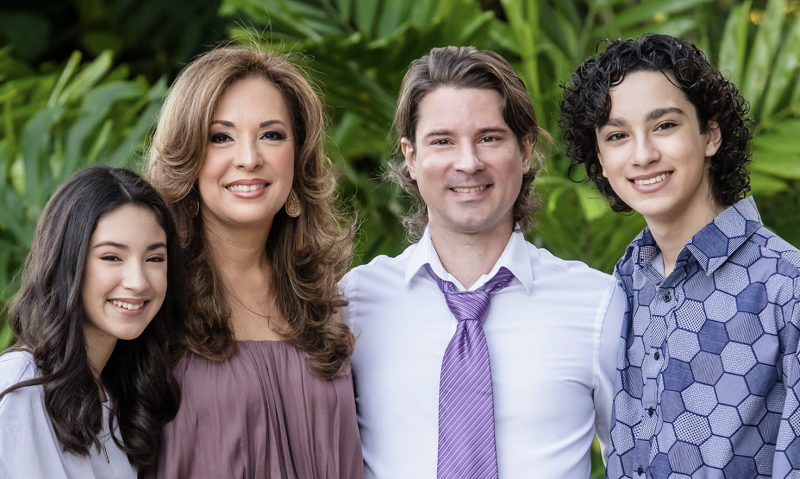
What are three things that motivate you in your role?
- Helping others succeed
- Increasing the value of our products
- Stretching myself to do things I’ve never done before (especially the hard ones)
Every day is different, but can you outline what a typical day looks like for you?
On Mondays, the first thing I do is write down in my journal the things I want to accomplish during the week. On a daily basis I start the day by assessing my weekly goals, and I mark the things I need to accomplish for the day. This becomes somewhat redundant but it’s important for me because it allows me to “train the muscle” of not overcommitting work while keeping a steady pace of delivering value. It doesn’t always work as planned, but I’m pretty persistent in learning every day how to improve on this. My day is then mostly consumed by meetings, time blocked for me to work on my weekly deliverables, and small breaks in between if allowable. Emails are tough for me as they are for everyone. I’m not a fan of multi-tasking especially when I’m in meetings listening to others, so that means that emails are checked during small breaks and blocked time. Pre-pandemic, I made sure lunch was a ritual: a break and a chance to socialize with my colleagues outside of the office. Post-pandemic we all know that this has changed dramatically, so I try to at least take 20-30 mins to prepare and have lunch away from my computer. This is hard to do, but so important. It’s also a work-in-progress. Around 3pm I have to have my “cafecito” (espresso) break to get a boost. Between 3pm-5pm I’m usually very productive with my weekly goals. This is also the time I use to help with school pick-up or take the kids to appointments. Around 6pm I stop work and head to the kitchen to help prepare dinner so we can sit down and have dinner as a family, which is usually around 7pm. By the time we’re done cleaning the kitchen as a family, I take a little break to clear my mind and spend time with Sandra, Christian, and Valentina. Around 9pm, if there is something work-related that needs attention, or has been bothering me, I either write down my next actionable steps or ideas in my journal or I get online to do a bit of work. I’m very conscious that I do not want to take away time from my family, so I try hard not to make this a habit. I’m a fan of getting a good night’s rest so that I can keep my health and have the strength to tackle the next day’s problems. As long as there is not a new Star Wars or Marvel Studios season or movie out, and as long as I’m not behind anything critical at work, I’m usually in bed between 11pm and midnight.
What time do you typically wrap up the work day?
6pm
Do you log back in at night or do you shut it down completely?
80% of the time I try to not log back in at night as a selfish and healthy ritual. If I were to spend every evening working, then I would consider that a ‘red flag’. That usually means that there is a problem at work, or with me, that needs fixing - I will make note of that and address. No matter the role, no matter the responsibilities, a scalable and growing business requires everyone to find a good healthy balance of life and work.
Any productivity hacks?
- Learn OS shortcuts. Whether you’re a Windows or Mac user, take some time to learn as much as you can about the latest OS features and the productivity shortcuts that can help accelerate your workflow. You’ll be surprised at what you don’t know once you start discovering.
- Write your TODOs. Write your weekly tasks/todo’s in a digital or physical journal/notebook. Only commit to what you can do in the week with plenty of buffer for the unknowns. Don’t write more than 5 attainable things.
- Journal your work. Keep a journal handy so you can write down problems and ideas as they come through your stream of consciousness (your mind). These thoughts may come during meetings or while you’re working on something else. Trust your thoughts and just write them down as they come. Usually they reveal the answer to the problems you’re trying to solve, but you will likely not realize that until later in the week.
- PowerPoint-First. Start a slide deck for anything you MAY NEED to communicate, even if you haven’t been asked to prepare a deck. Start early, right at the moment you start a project. Don’t wait until the end. Avoid writing sentences and just write main concepts that you can talk to right in the deck, even if they’re just ideas of what you want to accomplish. You can always add visuals later. Try to avoid creating a Word doc that you later need to convert to a slice deck - this is a waste of time. This way if you’re asked to talk about your project with little time to prepare, you are not stressing out that you need to prepare. You should ALWAYS have a deck handy for all your work.
- Draw your ideas. Draw on paper and take pictures of them. Sometimes words can’t capture how to solve a problem, or explain how a solution works. Draw your thoughts into shapes that tell a story, or a journey, and refer to them when you are ready to tackle the problem. At the very least, they may help you when you need to communicate your work via a slide deck.
- Seek help early. We don’t know everything and no one expects us to. Ask someone for help during the day. Go to lunch or dinner with someone that may be able to help you. Reach out to your network of friends and colleagues and ask ‘has anyone solved this before?”.
- Slow down. If you feel you’re working on too many things and are going way too fast, slow down. Take a break and think through what is really most important to the business for the present moment in time. Prioritize your list, reset expectations, and push out work that is not really that critical. When your day is manageable, your mind will be in the best position to think through solutions. When working at a manageable pace, you will work less to accomplish all of your goals.
- Meditate, especially when stressed. Once your mind is overwhelmed it becomes unproductive. Take 20 minutes to do simple breathing exercises, or the meditation of your choice, and then go back to tackle the job. If you can do this daily in the morning prior to work, or at night prior to bed, it will pay you great dividends.
- Sleep at least 7 hours each day. I know this is what doctors recommend but it is very important to remind ourselves of this. It’s ok to stay up or pull an all-nighter every once in a while - we’ve all been there. Just remember that if you do, you have a debt to pay. There is no way to cheat on this one.
- Take PTO. Plan it ahead of time and make sure you maximize your PTO through the year. Travel and get out of your routine world. Not only will you be refreshed and reenergized, but you will learn and gain new ideas and perspectives that will fuel your innovation when you return to work. It’s a win-win.
What are the 3 apps that you can’t live without?
Apple News, Amazon, Netflix
What professional accomplishment are you proudest of?
Using my product, engineering, and architecture leadership skills to help grow a SaaS company from $150M to $1.5B in revenues in 14 years.
Who do you admire or call upon for professional advice?
Easy answer. My fearless leader, Jess Keeney.

